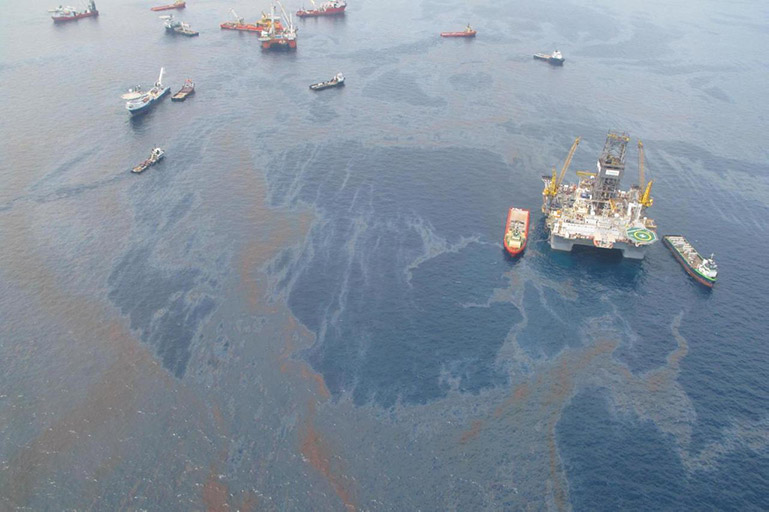UT Expert Co-Authors Study on Oil Spill Clean Up Safety
A UT professor and expert known for his work on the Deepwater Horizon oil spill recovery efforts has co-authored a report making a series of recommendations to federal agencies on how to safely clean up after spills.
Terry Hazen, the UT–Oak Ridge National Laboratory Governor’s Chair for Environmental Biotechnology, teamed up with other scientists to write a report on oil spill recovery safety published this month by the National Academies of Science, Engineering, and Medicine.
“One of the biggest concerns in cleanup efforts is the effect the spill has on people’s health and livelihood,” Hazen said. “It’s not just that oil itself is harmful and potentially even flammable, but you have to be careful what kind of chemicals you expose crews to while trying to clean or contain the oil.”
Key findings in the report include a look at the risks associated with one of the leading dispersal agents and questions and recommendations related to testing methodology.
A dispersant known as dioctyl sodium sulfosuccinate (DOSS) was used following the Deepwater Horizon incident and in many other cleanup efforts.
By measuring DOSS levels in sea life in the region, the team was able to establish how long the chemical lingers and what health effects it has on varying organisms.
While finding that the risks associated with DOSS were minimal, the team found that its use where oil concentrations in water were more than 100 milligrams of oil per liter actually did increase toxicity, though they noted that oil concentrations are typically much lower than that in spills.
The researchers also discovered that testing methodology used after spills is typically so varied that it is hard to draw broad conclusions when comparing different spills.
To combat this, the team recommends the creation of some form of standardized testing that would enable data to be correlated from one spill to the next.
The work was sponsored by several government agencies, including the US Environmental Protection Agency, the Bureau of Ocean Energy Management, and the Gulf of Mexico Research Initiative, among others, and can be read online.
Contact
David Goddard (865-974-0683, david.goddard@utk.edu)
In the News
Lab Manager: New Report Examines Safety of Using Dispersants in Oil Spill Cleanups
